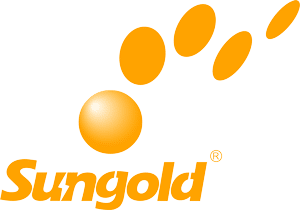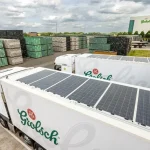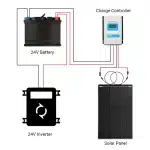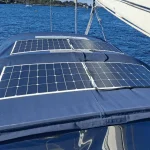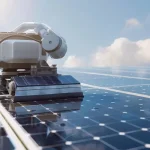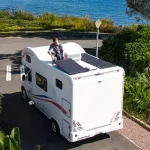Flexible solar panels have quickly become a go-to power solution for RV enthusiasts, boat owners, outdoor explorers, and even urban homeowners seeking balcony-friendly solar setups. But how do they stack up against traditional rigid panels? And how do you choose the right flexible solar solution for your needs?
In this guide, we break down everything you need to know about flexible solar panels—including how they work, where they shine, where they fall short, and what to consider when buying them wholesale or for personal use.
What Are Flexible Solar Panels and How Do They Work?
Flexible solar panels—also known as lightweight or bendable solar modules—are made from ultra-thin photovoltaic layers laminated onto flexible substrates like polyester (PET), polyimide, PTFE, or fluorinated polymers. These materials allow the panel to bend up to 30 degrees or more without damaging the internal solar cells flexible.
Compared to traditional monocrystalline or polycrystalline rigid panels, solar power flexible panels are:
- Lighter
- Thinner
- Easier to install on curved or uneven surfaces
However, they may offer slightly lower conversion efficiency and shorter service life.
Common Applications:
- Commercial rooftops, metal or flat roofs
- Balcony solar systems
- BIPV (Building Integrated Photovoltaics)
- RVs, boats, outdoor gear, and portable solar power systems
- Off-grid setups and custom devices (e.g., landscape lights or robotics)
What Are the Pros and Cons of Flexible Solar Panels?
✅ What Are the Benefits of Flexible Solar Panels?
- Installation Flexibility
These panels can bend and curve to fit almost any surface, ideal for RV roofs, boats, or tents. Perfect for creative solar designs. - Portability
Thanks to their lightweight construction, flex panel solar products are easy to move, transport, and install without special equipment. - Cost-Effective Manufacturing
Lightweight materials and simplified production help reduce costs while maintaining solid power output over time. - Shape Adaptability
Flexible solar sheets can be cut and molded to fit tight spaces, enhancing surface utilization and aesthetics. - Efficient Output
Many bendable solar panels reach up to 23–25% efficiency, comparable to rigid panels. - Durability
Built to resist UV, salt mist, and moisture, many flexible solar modules last 5–15 years depending on quality. - Eco-Friendly
Their production emits fewer pollutants and aligns with green energy goals.
❌ What Are the Disadvantages of Flexible Solar Panels?
- Heat Buildup
Close surface mounting can trap heat, reducing power output and overall lifespan. - Shorter Lifespan
Most flex panels last 5–15 years vs. 25–30 years for rigid panels. - Slightly Lower Reliability
More prone to physical damage. Most warranties are 5 years—premium models like Sungold PA219 come with TUV certification and up to 10-year warranties.
Where Can Flexible Solar Panels Be Used Effectively?
- RVs & Campers
Mount easily on curved roofs; reduce wind resistance and total vehicle weight. - BIPV Systems
Install directly on walls or integrated rooftops for a clean, modern look. - Balcony Solar Setups
Compact, non-intrusive, ideal for urban solar energy production. - Boats & Yachts
Salt-resistant and waterproof—great for marine solar charging. - Camping & Outdoors
Easy to fold and carry, providing reliable power off the grid. - Off-Grid Power Systems
Power security cameras, lighting, water pumps, or IoT devices without grid access.
What Should You Consider Before Buying Flexible Solar Panels?
| Factor | Key Considerations |
|---|---|
| Wattage | Measured in watts (W), defines how many devices can be powered. Higher wattage = more output. |
| Efficiency | 15% is standard; best flexible solar panels can reach up to 25%. |
| Lifespan | Depends on materials. ETFE is ideal for wet conditions. HPC is eco-friendly. |
| Bend Angle | Most flexible solar modules can handle up to 30° without damage. |
| Weight & Size | Most weigh between 4–8 lbs. Choose based on your mounting surface and mobility needs. |
| Ease of Installation | Look for panels with adhesive backings or hook-and-loop mounting kits. |
| Warranty | 5+ years is recommended; Sungold panels offer up to 10 years. |
| Durability | Must be waterproof, dustproof, corrosion-resistant. Check temperature coefficients. |
| Budget | Balance performance, longevity, and efficiency within your budget. |
How Do Flexible Solar Panels Compare to Rigid Panels?
Note: Most flex panels aren’t fire-rated or insulated enough for rooftops—except Sungold’s PA219 and PA621, which are designed for light roofs and offer thermal insulation for RV use.
| Feature | Flexible Panels | Rigid Panels |
|---|---|---|
| Applications | RVs, boats, balconies, lightweight rooftops | Home rooftops, industrial, large-scale PV |
| Efficiency | Moderate (15–23%) | High (18–23%) |
| Lifespan | 5–15 years (some with 10-year warranties) | 20–30 years |
| Installation | Simple, lightweight, no drilling | Requires mounts, brackets, and structure |
| Cost | Low upfront cost, best for short-term or mobile | Higher upfront, more economical long-term |
Frequently Asked Questions (FAQ)
Q: Are flexible solar panels less efficient than rigid panels?A: Typically 5–10% less efficient, but high-end models now rival rigid panels in some cases.
Q: How light are flexible solar panels?A: Most weigh around 5 lbs, compared to 40 lbs for standard rigid panels.
Q: What causes flexible panels to fail?A: Over-bending, direct impact, or thermal expansion can damage internal layers.
Q: What is the thinnest solar panel available?A: Sungold monocrystalline flexible panels are as thin as 2mm–3mm.
Conclusion: Should You Choose Flexible Solar Panels?
Flexible solar panels offer a compelling mix of lightweight design, curved-surface adaptability, and simple installation—making them ideal for RVs, marine use, off-grid cabins, and portable applications. While they do sacrifice some efficiency and lifespan compared to rigid panels, their flexibility opens up use cases that traditional panels simply can’t match.
For the best results, look for premium models with strong warranties and durable materials—like the Sungold PA219 or PA621, designed for demanding use on rooftops and RVs.

